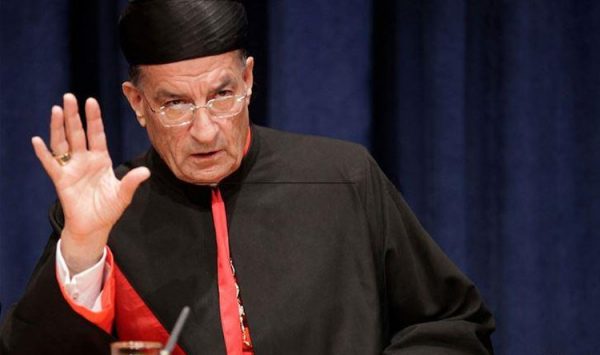
Lebanese politicians and ordinary citizens alike are fuming over a secretive presidential decree granting nationality to dozens of people, allegedly including Syrian investors close to the Damascus regime.
Critics have slammed the secrecy surrounding the move and say it adds insult to injury for thousands unable to acquire nationality because they were born to Lebanese mothers and foreign fathers.
Political discourse in Lebanon, a country of just 4 million, is deeply divided over the war in neighboring Syria, with allegations of corruption on all sides.
The contested decree has brought all of that to the fore.

It was reportedly issued on May 11 after being signed by President Michel Aoun, but news of its existence only emerged last week when dozens of names allegedly included in the edict were leaked to the media.
It prompted a wave of public outrage, with Lebanese officials scrambling to defend themselves or defect blame.
The president’s office confirmed the decree’s existence, but said it had submitted the names to the General Security agency to verify they all have “the right” to become Lebanese.
That agency, in turn, established a hotline and encouraged citizens to call in any relevant information about named individuals.
The official list has yet to be made public.
Lebanese media reported it may include as many as 300 people, including businessmen known to be close to Syrian President Bashar Assad.
Names being circulated include powerful industrialists Khaldun al-Zoabi and Samer Foz, who has since denied he requested nationality, as well as Mazen Mortada, the son of a former Syrian minister.
MP Wael Abu Faour warned on Sunday : “This decree will not slide.”
“We won’t allow Lebanese nationality to become a commodity to be bought and sold — and to whom? To killers and their biggest allies,” he said
Some critics also took to Facebook, with activist Firas Abu Hatum calling the decree “a business venture to fill coffers”.
“And more than that, it’s a project to sell the country to the Syrian regime,” he wrote.
Naturalisation is controversial in Lebanon, where power is shared according to religious parity.
Fears of upsetting that delicate demographic arrangement are often cited as the reason Lebanese women cannot pass their nationality onto children born to foreign fathers.
Today’s debate has a precedent: in 1994, during Syria’s military occupation of Lebanon, tens of thousands were naturalised by a controversial presidential decree.
At the time, Aoun fiercely opposed the move.
His issuance of the new decree was like rubbing salt into an open wound — particularly for thousands in Lebanon officially considered “stateless” and not allowed to work or own property.
“Legally they don’t exist. You’re nobody: your presence isn’t registered, your death isn’t registered,” says Samira Turad, from Lebanese NGO Frontiers Rights.
The group estimates there are up to 60,000 in Lebanon without identity papers, most in marginalised areas.
“Before naturalising foreigners, the state should decide to limit this phenomenon of stateless people, who have more of a right to Lebanese nationality,” said Turad.
AFP

Leave a Reply
You must be logged in to post a comment.